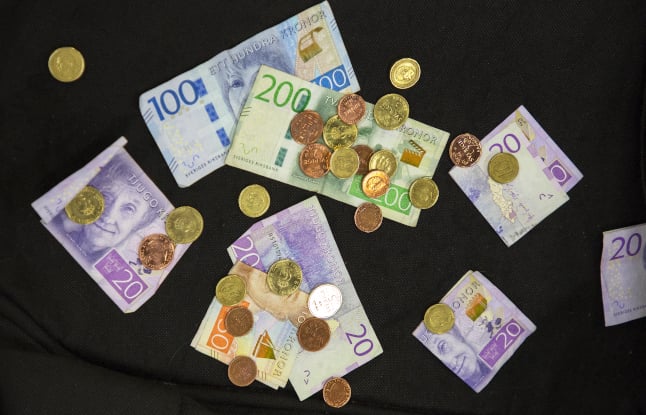The announcement comes years after the Riksbank first said it was looking into creating its own digital currency, an e-krona, based on block-chain technology.
“The aim of the project is to show how an e-krona could be used by the general public,” said the Riksbank in a statement on Thursday.
“A digital krona should be simple, user-friendly as well as fulfil critical requirements for security and performance.”
The pilot project will be run “in an isolated test environment” together with digital tech consultants Accenture and there are no confirmed plans to issue an e-krona to the public, or what technology would be used.
For now, the project will be based on so-called Distributed Ledger Technology.
“In the test environment, simulated users shall be able to hold e-kronor in a digital wallet, make payments, deposits and withdrawals via a mobile app. The user shall also be able to make payments via wearables, such as smart watches, and cards,” said the Riksbank.
The pilot is set to run until the end of February 2021.
EDITOR'S PICK:
Cash is dying a slow death in Sweden, with alternative methods of payment commonplace, such as card and mobile payment app Swish.
In 2010 nearly 40 percent of Swedes said they paid for their most recent purchase in cash, according to a report by the Riksbank. By 2018 that proportion had drastically decreased to 13 percent.
Proponents hail the cashless society as safe and convenient. But for, for example, elderly people, or international residents struggling to set up a bank account, it can also cause a number of headaches.
The Riksbank has previously said that if the e-krona is issued it will be as a complement to rather than a replacement for cash, adding that it will continue to issue banknotes and coins as long as there is a demand for them in Swedish society.



 Please whitelist us to continue reading.
Please whitelist us to continue reading.
Member comments